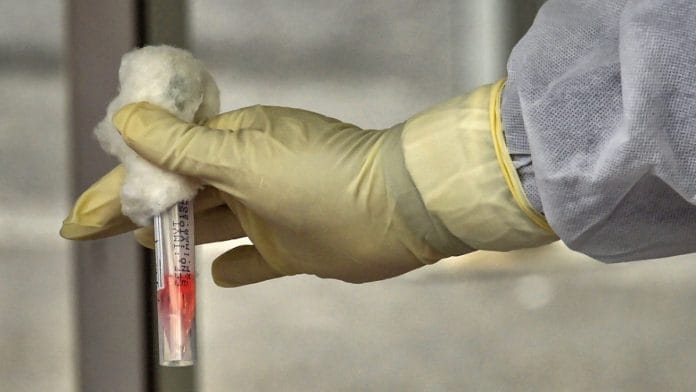New Delhi: A Bengaluru-based start-up has developed an artificial intelligence (AI) tool that can analyse lung CT scans for Covid-19 biomarkers, measure progression of the disease and help doctors decide which patients may need critical care.
The tool called ‘LungIQ’ can be used alongside RT-PCR tests to screen patients and quickly detect false negatives.
Funded by the government’s Biotechnology Industry Research Assistance Council (BIRAC), the four-year-old start-up, Predible Health, is already working with a hospital in Philippines to collect more patient data that will help the team concerned refine their algorithm.
“An RT-PCR test tells us whether or not you have the disease, but one can not determine the severity of the disease in a patient unless we look at the lung scans and see how they have been affected,” Sutirth Vaidya, CEO of Predible Health, told ThePrint.
The tool identifies what percentage of the lung is affected by analysing CT scans. It can help doctors understand how the patient is doing, how badly he is affected and whether he needs a ventilator.
“The idea of our tool is that you can use a CT scan to get an accurate picture of the disease progression. After treatment, the tool can show how this percentage has changed,” Vaidya said.
Also read: Tech companies can appoint third party oversight on privacy risks in Covid-19 tracking
‘Talks with teams in Mumbai, Delhi’
LungIQ was developed by the team to help detect cancer, COPD (chronic obstructive pulmonary disease) and interstitial lung diseases, which is a group of disorders that cause progressive scarring of lung tissues.
The team has already collected a lot of data that helps to quantify lung damage in interstitial lung diseases, and it turns out that a lot of Covid-19 findings are very similar to interstitial lung diseases, Vaidya said.
Over the last two months, the team has collected data on viral pneumonia and refined the algorithms.
Now they are working with an international network of hospitals that are using this tool to analyse lung damage in Covid-19 patients and collecting more data that will help the algorithm learn about the patients’ outcomes associated with different percentages of lung damage.
“We are working with one hospital in the Philippines, and are in talks with different teams in Germany, Mumbai and Delhi,” Vaidya said.
Benefits of AI algorithm
Vaidya said they can already detect the biomarkers linked to Covid-19. However, what different percentages of disease progression mean for patients is still unclear.
“So we are working with hospitals to consolidate data on what happens to the patients with different degrees of lung damage,” Vaidya added.
Reports have shown that the sensitivity of RT-PCR tests to detect Covid-19 is lower than that of chest CT scans.
“In the US and Europe, hospitals are using CT scans adjunct to RT-PCR. There is diagnostic benefit in using CT scans since you can potentially catch the false negatives,” said Vaidya.
However, these CT scans will not be able to identify asymptomatic patients with the disease.
“If Covid-19 becomes endemic like the flu, a software like this will become part of the process to monitor how the treatment is working and you’ll want to know which patient needs what kind of care,” he said.
The team is not the only one to work on such technologies. The US FDA has also approved the clinical use of AI algorithms for quantifying lung pathology on chest CT scans in Covid-19 patients admitted to hospitals.
In India, other researchers are also working on such AI tools.
CT scans not the best screening tool
Commenting on the use of such technologies, Dr Vikas Maurya, a pulmonologist at Fortis Hospital, told ThePrint CT scans may not be the best screening tool during a pandemic, especially in a country like India.
“CT scans are very expensive, and the equipment will have to be disinfected after every use. Patients will have to be taken from one part of the hospital to another for these tests, which will increase the risk of disease spread,” Maurya said.
However, he added that such tools can indeed be useful to study disease progression in Covid-19 patients, who are already hospitalised.
Once the pandemic situation is over, the AI tools can be very useful to flag a suspected patient when they undergo routine CT scans, Maurya said.
Also read: India is using at least 19 apps to track and trace Covid-19, including Aarogya Setu






